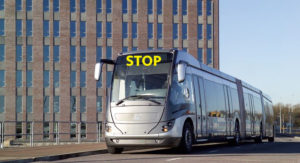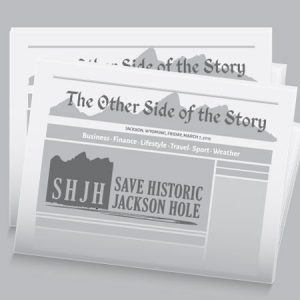
Wildlife: priority zero
Elected officials agreed to establish a Community Priorities Fund and in doing so completely ignored the No. 1 concern of the community: conservation. Time and again, when polled, residents of Teton County have been in unison when it comes to preserving wildlife, habitat and open space. In fact, it’s the one and only thing this diverse community can agree on.
Time and again, our desires are ignored.
The 2012 Comp Plan calls for the establishment of a “dedicated funding source for conservation easements and other measures that protect the wildlife habitat, habitat connections, and scenery valued by the community.” To date, none has been designated.

When presented with the perfect opportunity to do so—voting on a general sales tax increase to fund this community’s priorities—electeds once again said no to conservation. At Monday’s JIM, they voted unanimously to raise taxes for housing (50%) and transportation (50%), exclusively.
Commissioner Smokey Rhea expressed her concern that wildlife was not being considered. Commissioner Mark Newcomb took a stronger stance, electing to abstain from the vote in a show of displeasure. It was a nice gesture but a no vote would have been more powerful. Granted, abstaining meant he did not have to cast a vote that would likely be perceived as opposed to housing, which is a death sentence to any politician right now.
It certainly appears as if our elected officials are more worried about reelection and keeping their jobs than they are in doing the bidding of its citizens.
Questions?
Housing is the perceived fire that needs to be put out immediately—today, say elected officials. Adequate workforce housing inventory (rental or ownership) for lower- or middleclass has always been a challenge in the valley, but creating a tax to fund the issue is a desperate knee-jerk measure in response to the intense emotional clamor of the day.
A vote to raise taxes for housing would have gone nowhere in 2010 when the recession helped keep real estate process in check and adequate rentals available to a degree. At various times through the last two decades, housing has been on the front burner, back burner, and sometimes not even on the stove at all. Planning for the future of the county should be a big picture undertaking, not a menu serving of the soup du jour.
It’s the squeaky wheel today. It is causing politicians to bend to pressure and forget a few things:
- Is government built housing effectively solving the problem? We need to build 3 Groves each year for the next 10 years to keep up with projected growth. Government subsidized building (using the latest metrics) works out to a cost of nearly half a million dollars per unit. We’ll need $125M in today’s dollars, to do this. Can’t be done.
- Will a private-public partnership get the job done? Based on current numbers for the Housing Trust’s Redmond-Hall project ($12M for 28 units), this arrangement can put housing on the ground for $429,000 a unit. Not much better.
- What part of building apartment complexes maintains dark skies at night, or natural landforms, or pristine hillsides/buttes, or keeping open vistas? All called for in the Comp Plan.

One last thing. Let’s say electeds really didn’t give two shakes about wildlife/habitat/open space even though, when asked, valley residents respond somewhere around 75% in favor of funding these priorities, or at least considering them the most important thing we care about as a community.
Given that, wouldn’t it be prudent to at least include conservation on the short list of things we want to tax ourselves for? If a penny increase in sales tax proposal went something like 50% for housing, 30% for transportation, and 20% for wildlife/habitat preservation—wouldn’t that at least be a little more palatable to voters? Sweetening a tax increase with a little sugar might have worked.
As it stands, ANY amount of money we throw at housing will likely be perceived as either a waste or unproductive. We can give START Bus a zillion dollars tomorrow to buy a trillion buses and that still won’t mean more people will ride the bus.
Our elected leaders have virtually guaranteed the failure of this tax at the polls this November.
The homeless have a voice, and their struggles are certainly real and sorrowful. Jackson Hole’s wild creatures, its beautiful landscapes and unspoiled natural features cannot speak. Save Historic Jackson Hole has been and will always be dedicated to reminding our government leaders what we as a united community have always stood for: Wild Wyoming.
